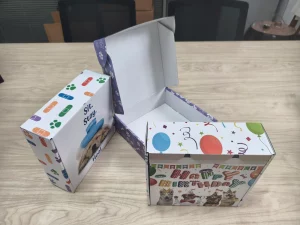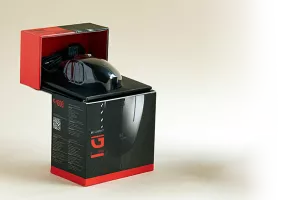In today’s fast-paced market, businesses are constantly seeking ways to improve their operations, reduce costs, and enhance sustainability. One crucial area where efficiency can be maximized is in bulk packaging. As a leading packaging manufacturer, we understand the challenges companies face when it comes to packaging solutions that not only protect their products but also streamline their supply chain. This article will explore the various aspects of bulk packaging, including its benefits, types, and how it can significantly impact your business. By the end, you’ll be equipped with the knowledge to make informed decisions regarding your packaging needs.
Tabla de contenido
What is Bulk Packaging?
Bulk packaging refers to the process of packaging products in large quantities rather than in individual units. This type of packaging is commonly used for transporting and storing products that are sold in large volumes, such as food ingredients, chemicals, pharmaceuticals, and industrial supplies.It typically involves using large containers, such as palés, bulk bagso intermediate bulk containers (IBCs), which facilitate easy handling, transport, and storage. The primary goal of bulk packaging is to reduce packaging costs and improve logistics efficiency while ensuring product integrity.
Why is Bulk Packaging Important for Businesses?
Bulk packaging plays a crucial role in enhancing operational efficiency and reducing costs. Here are several reasons why it is important for businesses:
- Cost Savings: By utilizing bulk packaging, companies can save money on packaging materials and reduce shipping costs. Fewer individual packages mean lower packaging expenses and decreased waste.
- Increased Efficiency: Bulk packaging allows for faster packing and unpacking processes. Workers can handle larger quantities at once, which streamlines operations and saves time in logistics.
- Enhanced Protection: Proper bulk packaging ensures that products are protected during transport and storage. It minimizes the risk of damage, contamination, and spoilage, particularly for sensitive products like food and pharmaceuticals.
By adopting bulk packaging solutions, businesses can optimize their operations and improve their overall bottom line.
What are the Different Types of Bulk Packaging?
There are several types of bulk packaging used across various industries. Here are some commonly used options:
- Bulk Bags: Also known as FIBCs (Flexible Intermediate Bulk Containers), bulk bags are made from woven fabric and are ideal for storing and transporting dry bulk materials, such as grains or chemicals.
- Pallets: Used for stacking boxes or bags, pallets improve the efficiency of loading and unloading during transport. They are often constructed from wood, plastic, or metal.
- Intermediate Bulk Containers (IBCs): These containers hold liquids or bulk solids and are designed for easy handling and transport, making them ideal for the chemical and food industries.
- Cajas de cartón ondulado: While usually associated with retail packaging, corrugated boxes can also be used for bulk shipments when combined with pallets to facilitate storage.
Choosing the right type of bulk packaging depends on the nature of the product, the quantity, and the specific requirements of the supply chain.

How Does Bulk Packaging Improve Supply Chain Efficiency?
Implementing bulk packaging can significantly enhance supply chain efficiency in various ways:
- Streamlined Logistics: Bulk packaging reduces the number of individual units that need to be handled, allowing for more efficient loading and unloading processes.
- Reduced Handling Costs: With fewer packages to manage, labor costs associated with packing, unpacking, and transporting products can be minimized.
- Optimized Storage Space: Bulk packaging solutions often allow for better use of storage space in warehouses and during transportation, leading to lower storage costs and improved inventory management.
By utilizing bulk packaging, companies can streamline their entire supply chain, leading to improved productivity and cost effectiveness.
What are Sustainable Bulk Packaging Solutions?
Sustainability is becoming increasingly important in packaging. Companies are now looking for soluciones de envasado sostenibles that minimize environmental impact while maintaining functionality. Some sustainable options include:
- Reusable Containers: Containers that can be cleaned and reused multiple times help reduce waste and are cost-effective in the long run.
- Biodegradable Materials: Packaging made from biodegradable materials decomposes over time, reducing landfill waste and environmental harm.
- Recyclable Packaging: Choosing packaging materials that can be recycled contributes to a circular economy and promotes sustainability goals.
By adopting sustainable bulk packaging solutions, companies not only enhance their brand image but also contribute positively to the environment.
How to Choose the Right Packaging Solution?
Seleccionar el packaging solution for your bulk products involves several considerations:
- Tipo de producto: Consider the nature of your product (e.g., liquid, solid, hazardous) and choose a packaging material that best protects it during transport and storage.
- Quantity: Determine the volume of product you need to store and transport. This will help you decide on the appropriate size and type of bulk packaging.
- Logistics and Handling: Evaluate how the product will be handled throughout the supply chain. Choose packaging that facilitates easy loading, unloading, and storage.
By carefully assessing these factors, you can select packaging solutions that align with your operational needs and objectives.

What Industries Benefit from Bulk Packaging?
Many industries can benefit from bulk packaging solutions, including:
- Food and Beverage: Bulk packaging is used for ingredients like grains, sugar, and liquids, helping to maintain freshness and quality.
- Pharmaceuticals: This industry requires strict compliance with regulations, making bulk packaging essential for safe transport of medicines and chemicals.
- Personal Care: Bulk packaging is commonly used for lotions, creams, and other products to facilitate large-scale distribution.
- Construction: Materials such as cement, sand, and aggregates are often shipped in bulk packaging for efficiency and cost-effectiveness.
By understanding the specific needs of these industries, packaging manufacturers can provide tailored bulk packaging solutions.
What is the Role of a Packaging Company in Bulk Packaging?
A empresa de envasado plays a vital role in the design, manufacture, and supply of bulk packaging solutions. Here’s how they can assist businesses:
- Personalización: Packaging companies can create custom bulk packaging solutions tailored to specific product requirements and branding needs.
- Garantía de calidad: They ensure that all packaging products meet industry standards and regulations, particularly for sensitive products like food and pharmaceuticals.
- Consultation: Packaging companies provide expert advice on the best bulk packaging solutions based on the unique needs of each business.
By partnering with a reputable packaging company, businesses can ensure they receive high-quality, effective packaging solutions that enhance their operations.
How to Calculate Your Bulk Packaging Needs?
Calculating your bulk packaging needs involves understanding your product volume and shipping requirements. Here’s a simple process to follow:
- Determine Product Volume: Calculate the total quantity of products that need to be packaged and shipped.
- Select Packaging Type: Choose the appropriate type of bulk packaging based on the product characteristics.
- Calculate Container Capacity: Assess the capacity of the chosen bulk packaging solution (e.g., how many liters or kilograms it can hold).
- Estimate Total Containers Required: Divide the total product volume by the container capacity to determine how many containers you’ll need.
This systematic approach ensures that you have the right amount of bulk packaging for your shipments.

Frequently Asked Questions About Bulk Packaging
What is bulk packaging?
Bulk packaging refers to the packaging of products in large quantities rather than individual units, typically using containers like bulk bags or pallets.
Why is bulk packaging important?
It reduces packaging costs, enhances logistics efficiency, and improves product protection during transport and storage.
What types of bulk packaging are available?
Common types include bulk bags, pallets, intermediate bulk containers (IBCs), and corrugated boxes.
How can bulk packaging improve supply chain efficiency?
By reducing the number of individual units to manage, bulk packaging streamlines logistics, reduces handling costs, and optimizes storage space.
What are some sustainable bulk packaging options?
Options include reusable containers, biodegradable materials, and recyclable packaging.
How do I choose the right bulk packaging solution?
Consider the product type, quantity, and logistics handling requirements when selecting a packaging solution.
Summary of Key Points
- Bulk packaging is essential for cost savings, efficiency, and product protection in various industries.
- Different types of bulk packaging, such as bulk bags y palés, serve specific needs for different products.
- Sustainable bulk packaging solutions enhance brand image and contribute to environmental goals.
- Choosing the right packaging solution involves careful consideration of product type, quantity, and logistics.
- Partnering with a reputable empresa de envasado ensures high-quality, customized bulk packaging products.
By investing in effective bulk packaging solutions, you can significantly enhance your operational efficiency and drive your business forward. If you want to explore how our packaging manufacturing plants can meet your bulk packaging needs, contact us today!
Unable to render image
Explore more about our packaging solutions:
- Sustainable Packaging Practices
- Packaging Supplies for Every Industry
- Custom Packaging Solutions
- Streamlining Your Supply Chain
- Innovative Packaging Materials
Principales conclusiones:
- Bulk packaging is crucial for optimizing costs and improving logistics.
- Various types of bulk packaging serve different product needs across industries.
- Sustainable practices in bulk packaging contribute to a healthier environment.
Let me know if you have any questions or need further assistance!








